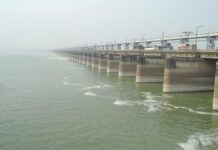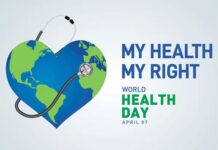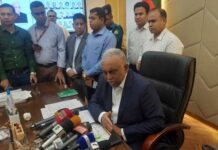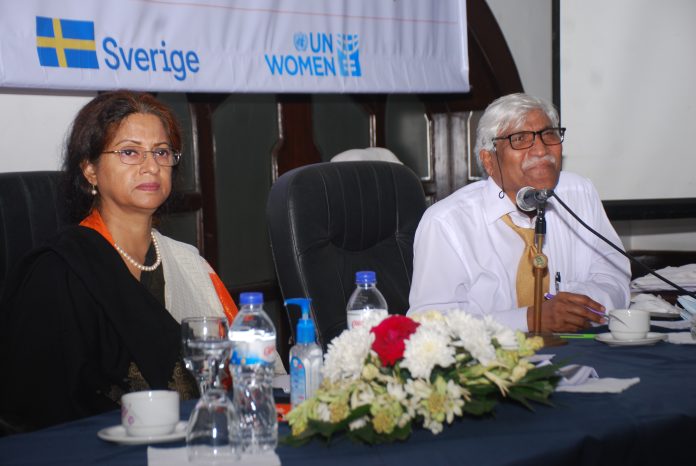
Disaster preparedness for vulnerable communities
Roton Malo
A study shows that lack of coordination among different agencies and organizations is a big challenge in Bangladesh towards disaster preparedness for vulnerable communities in disaster-prone areas.
The study titled ‘Community Risk Assessment (CRA) with Gender Equity Analysis’ also shows that vulnerable people specially women, people with disability and elderly are deprived of adequate institutional supports due to local social context in Bangladesh.
Bangladesh Centre for Advanced Studies (BCAS) conducted the study from February to September 2021 in Islampur and Dewangan upazila in Jamalpur; Sadar and Clilmari upazila in Kurigram; Chakaria and Teknaf upazila in Cox’s Bazar; Shyamnagar and Kaliganj upazila in Satkhira; and Dacope and Koyra in Khulna district. 
Dr. Dwijen Mallick, Shekhar Kanti Ray, Tofayel Ahmed, Shamima Ishrat, Syeda Amirun Nuzhat, Jebunnahar Ahmed and Dil Meher Banu conducted the research under the mentorship of Dr. Atiq Rahman, Executive Director, BCAS and Dilruba Haider, Program Head, Gender and Climate Change & Humanitarian Actions, UN Women.
Why did the researchers pick 5 districts?
The researchers picked five districts from coastal and flash flood-prone areas of Bangladesh. The districts are highly exposed to climate disasters with high poverty rate in Bangladesh.
The areas were selected in consideration of different ecosystems- Kurigram in northern part from flood plain area, Jamalpur from middle part of the country is also from a flood plain area while Satkhira, Cox’s Bazar and Khulna from South eastern and western coastal region.
Comments from Researchers
Attending a national dialogue in Dhaka, Dr Atiq Rahman said “Climate Change is a part of our life now. There are two main indicators that influence our life in a great deal and we should understand the circumstances of the climate factors.”
Dilruba Haider of UN Women, said “two disaggregated matters- sex & age should be considered. Apart from the girl child marriage, we should also think about the boys marrying in their early ages.”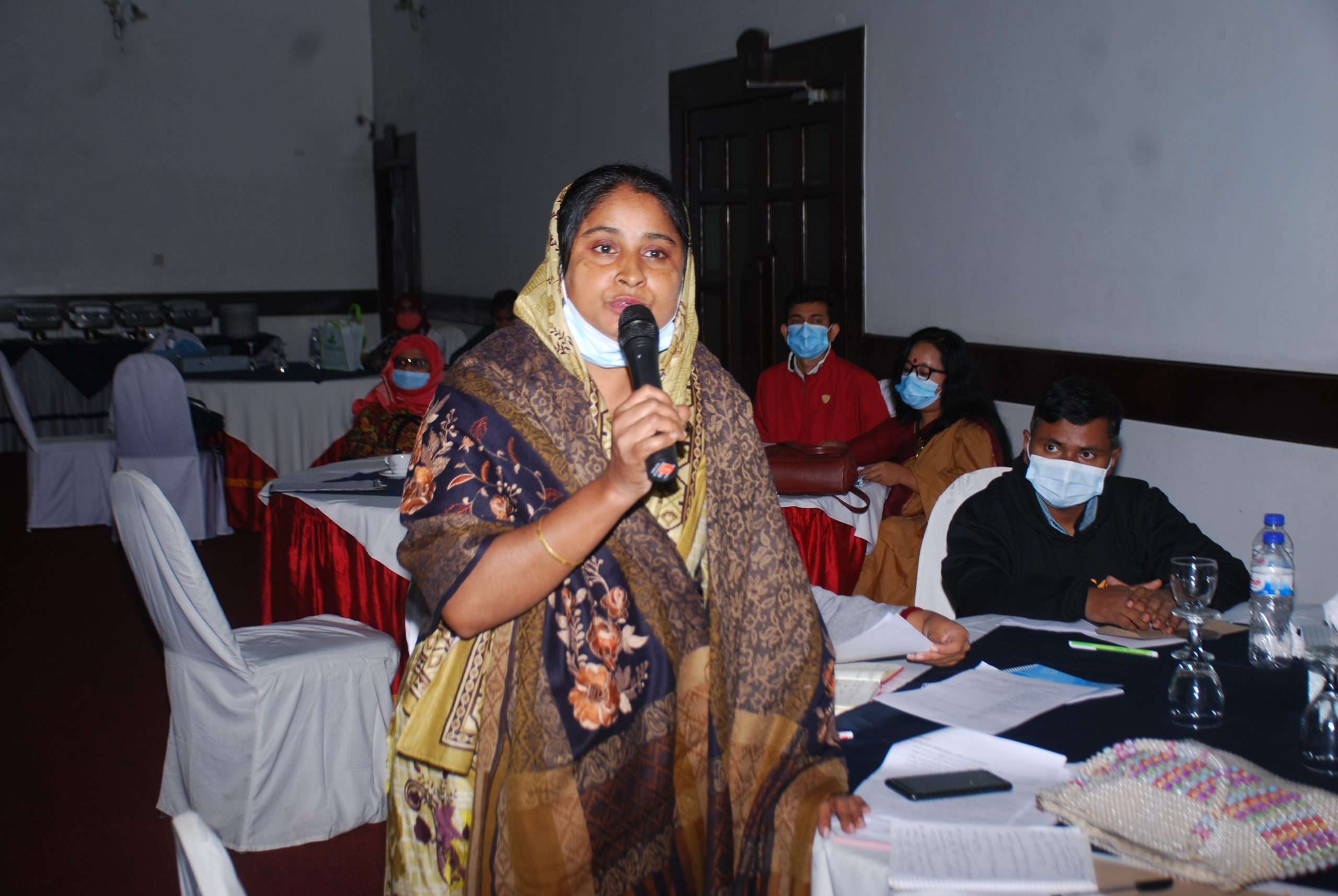
Emphasizing holistic approach for effective disaster preparedness, Dilruba Haider said a concerted effort by government agencies, NGOs and other stakeholders can ensure disaster preparedness.
Objectives of the study
The main objectives of the study were to deeply understand about differentiated impact of Climate Change on men and women, elderly people, children, people with disabilities and excluded communities. To deeply understand about influence of social factors and gender drivers on vulnerability and inequity. The last objective of the study was to identify appropriate gender responsive adaptation options for local climate options.
Methodology
The study was conducted in a mixed method approach which was significantly focused on oualitative (Focus Group Discussion with community people, Key Informant Interview (KII) with concerned Govt. offices, Local Government Representatives, Civil society members, Advocacy and validation workshops at Union parishads). The study has followed SADDD approach (Sex, Age and Disability Disagreegated Data.
Demographic information
More than 1000 people from five districts participated in the study as respondents. The respondents were selected from 17 to 70 years of age and from different education background.
Key findings
According to the key finds of the study by BCAS, lack of coordination among different agencies and organizations is found as a big challenge to enhance disaster preparedness of vulnerable communities.
On the other hand, vulnerable people specially women, people with disability (PWD) and elderly are deprived of adequate institutional supports (social safety net) due to local social context in the study area, the findings reveal.
Recommendations from researchers
The researchers finally recommended a regular maintenance of shelters to ensure safe place to the local communities during disasters. They also suggested to improve the WASH facilities and make them disaster tolerant.
Finally, the researchers said climate resilient as well as area specific livelihood programs and supports should be undertaken for the vulnerable communities in Bangladesh’s flood prone and coastal districts. ***
**Writer Roton Malo is a freelance journalist and development worker. Currently he is working at Caritas Bangladesh. Email: [email protected]












